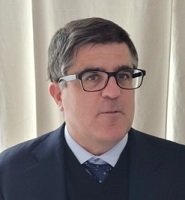Mark Seielstad is Professor of Human Genetics; Epidemiology & Biostatistics; and Laboratory Medicine at the University of California San Francisco (UCSF). He was educated at Stanford University, receiving simultaneous Bachelor’s degrees in Biological Sciences (with Honors) and Classics in 1992. From there, he went on to graduate studies at Harvard University, receiving a Ph.D. in Biology from Harvard University in 1998. Prior to his current position at the University of California, Professor Seielstad served on the faculties of Harvard University's School of Public Health and the National University of Singapore. From 2002–2009, he led the Human Genetics group at the Genome Institute of Singapore. Dr. Seielstad's expertise is in genomics and his research program is at the interface of genetic epidemiology and population/anthropological genetics. The main goal is to identify human genetic variation altering the risk of complex human diseases involving immunity (e.g., autoimmunity and susceptibility to infectious diseases) and metabolism (e.g., type 2 diabetes). This puts an emphasis on genomic technologies such as genome-wide SNP genotyping, and next-generation sequencing to reveal and characterize polymorphisms in whole exome and whole genome data. Much of this work is carried out in geographically diverse human populations, which are also the subject of anthropological investigations that seek to characterize the global distribution of genetic variation. In 2019–2020, Dr. Seielstad held a Senior Fulbright Fellowship at the Academia Sinica in Taiwan; and has active research projects in the Philippines.
USAID Profile
Bureau for Global Health (GH)
Climate and Health Technical Working Group
Mark Seielstad is part of the recently established Climate and Health Technical Working Group in the Bureau of Global Health (GH) at USAID. The primary goal of this working group is to operationalize the Agency's newly published Climate Strategy. Dr. Seielstad works on the Climate Strategy's primary activities, which are: To coordinate GH responses to Agency, interagency, and external requests regarding climate and health. To support GH Front Office participation in the Climate Change Leadership Council and coordinate and support GH participation in related working groups. To support all staff engaged in health programming at USAID as they plan for and respond to the impacts of climate change on their work and the populations they work with or as they work to mitigate climate change, specifically in the areas of capacity building, program design support, and monitoring program results. To coordinate GH's engagement on this topic with the rest of the Agency, the interagency, and multilateral partners.
|




